Is Biden's promise of a US-China thaw believable?
China and the US probably both know that they need each other, which is why over the past few months, amid the hostilities, they have been testing each other's limits and adjusting their strategies, and maintaining the tussling without cracking.
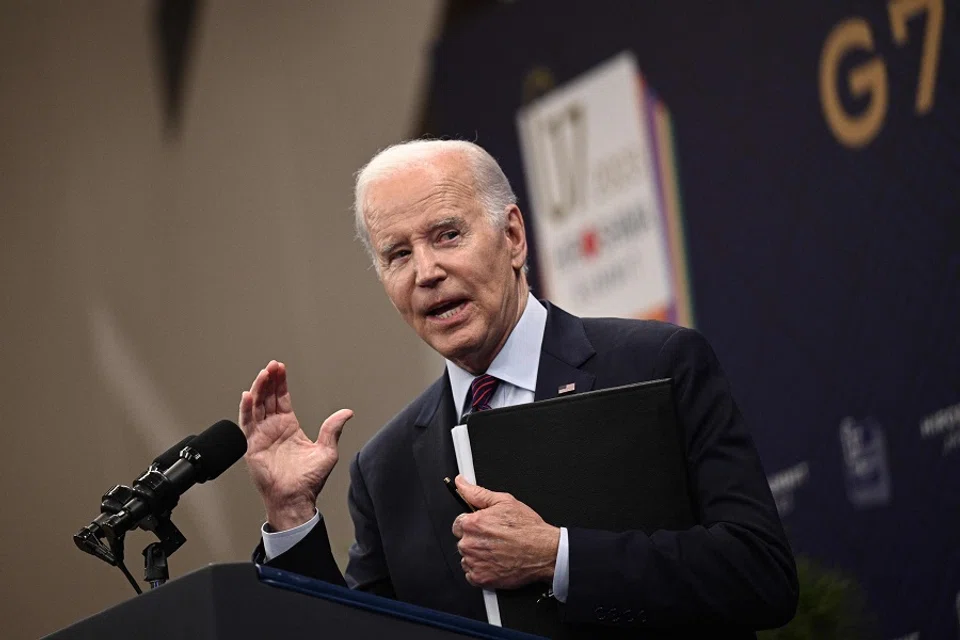
American news website Politico reported on Monday (22 May) that the new Chinese ambassador to the US, Xie Feng, would arrive in Washington on 23 May to assume his duties. This meant that the ambassadorial post, left vacant for months, would finally be filled.
Notably, the Chinese ambassadorship to the US has not been left unfilled for this long since the normalisation of China-US relations in 1979. The only exception was in 1995 when Ambassador Li Daoyu was recalled for two months as a protest against Taiwan President Lee Teng-hui's visit to the US.
Amid news of the new Chinese ambassador taking up his post, US President Joe Biden gave positive signals about China-US relations on 21 May. Speaking to the media after his attendance at the G7 summit in Hiroshima, Biden said that China-US relations would "thaw" very shortly.
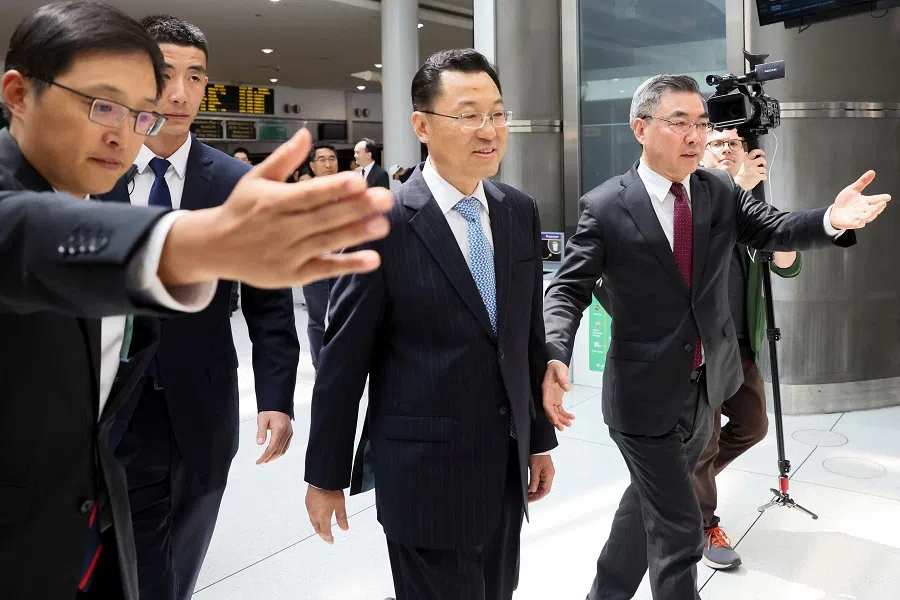
That same day, US ambassador to China Nicholas Burns tweeted that he had just landed in Chengdu. As China-US ties worsened in recent times, a pivotal event that stood out was the mutual shuttering of consulates in 2020, with China ordering the US consulate in Chengdu to close. It is unclear if Burns' visit to Chengdu indicates the possible reopening of the US consulate, but speculations are rife.
Increased engagement between the US and China
After geopolitical events such as the Russia-Ukraine war and former US House Speaker Nancy Pelosi's visit to Taiwan destabilised China-US relations, Biden and Chinese President Xi Jinping met in Bali last November. This actually kickstarted the warming of bilateral ties. US Secretary of State Antony Blinken had also planned to visit China in early February, but the visit was scuttled because of a troublesome balloon. Since then, China-US relations have been locked in a stalemate.
After over three months of tensions, Chinese and American officials met intensely in mid-May. From 10-11 May, Chinese Communist Party Politburo member and director of the Office of the Foreign Affairs Commission Wang Yi met US national security adviser Jake Sullivan in Vienna, and engaged in discussions described by both sides as "candid, substantive, and constructive".
Later, Chinese State Councilor and Foreign Minister Qin Gang and Minister of Commerce Wang Wentao met Burns separately in Beijing. Wang is also set to visit the US this week to attend a meeting of Asia Pacific Economic Cooperation (APEC) trade ministers, and meet with US Secretary of Commerce Gina Raimondo and US trade representative Katherine Tai.
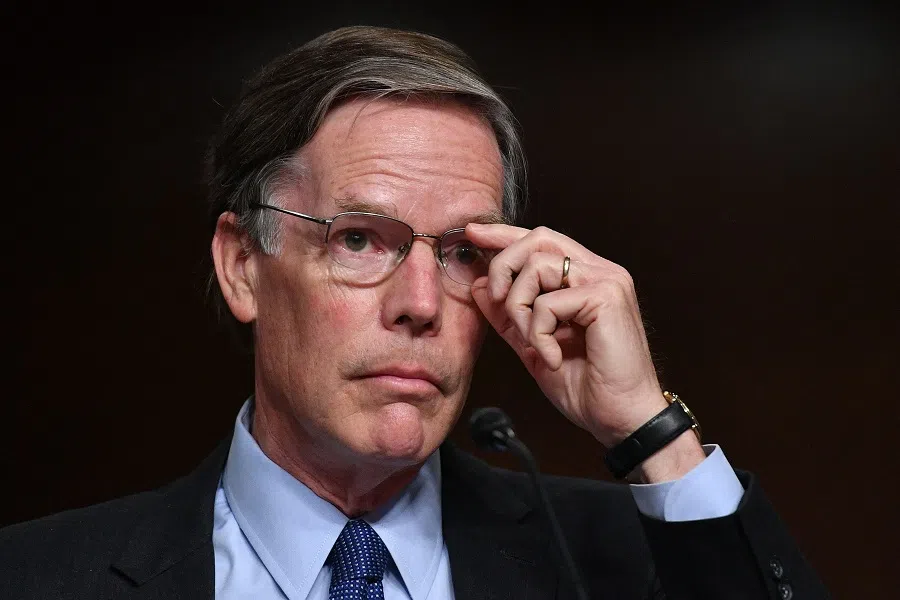
Will this flurry of meetings pause the downward spiral of China-US relations? Will China-US relations really "thaw" as Biden predicted?
From Beijing's perspective, Washington's approach of "communication on the one hand and containment on the other; dialogue today and sanctions tomorrow" is unacceptable.
China's cautious approach
After the balloon incident, Beijing's attitude towards China-US relations has significantly changed. It is convinced that US containment and suppression of China is an unchangeable fact, and is no longer hopeful that tactful negotiations and mutual concessions would improve China-US relations.
However, not only has Beijing not responded positively to Biden's optimistic signals, it has poured cold water on the situation. On the night of 21 May, Chinese authorities issued a ban on US chipmaker Micron, escalating the technology war. And at a routine press conference the next day, Chinese foreign ministry spokesperson Mao Ning posed a strongly worded question: "The US says it wants to speak to the Chinese side while seeking to suppress China through all possible means and impose sanctions on Chinese officials, institutions and companies. Is there any sincerity in and significance of any communication like this?"
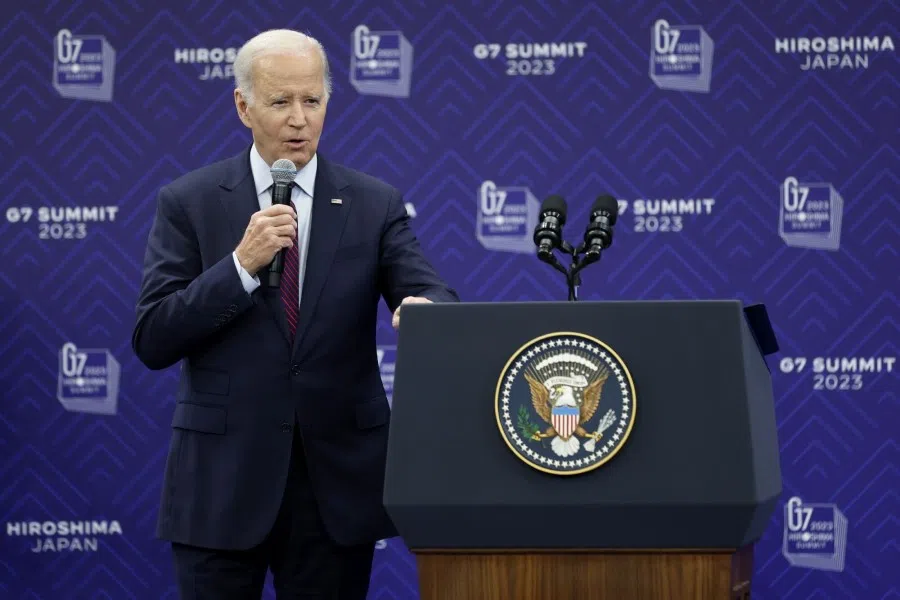
From Beijing's perspective, Washington's approach of "communication on the one hand and containment on the other; dialogue today and sanctions tomorrow" is unacceptable. Such an approach by the US towards China in recent years has led Beijing to believe that Washington is not sincere in improving bilateral relations and is determined to comprehensively contain, blockade, and suppress China. Beijing has adopted an aggressive posture of retaliation and head-on confrontation.
... the G7 statement clearly expressed a desire to maintain "constructive and stable" relations with China, emphasising that they have no intention to decouple from China and proposing a more moderate approach of "de-risking".
Both sides still need each other
But the attitude of the US towards China has changed recently, as evidenced by the G7 summit that just ended. The joint statement of the G7 pointed fingers at Beijing regarding issues such as Taiwan, the South China Sea, and economic coercion. However, the tone of the statement and the targeting of China were less pronounced than expected. The statement also revealed that G7 countries have redefined and re-outlined their policies towards China. For example, the statement clearly expressed a desire to maintain "constructive and stable" relations with China, emphasising that they have no intention to decouple from China and proposing a more moderate approach of "de-risking".
This echoes the change in policy thinking towards China as revealed by Sullivan during a press conference in Hiroshima. He said over the past two and a half years, G7 countries have tended to converge on some key issues, which was not seen a few years ago. "But it's not a cartoonish or one-dimensional policy. It is a multi-dimensional complex policy for a complex relationship with a really important country."
China cannot be completely self-sufficient and non-reliant on the US, nor counter the US with a tit-for-tat approach. If both sides fall into this zero-sum game, both will end up getting hurt.
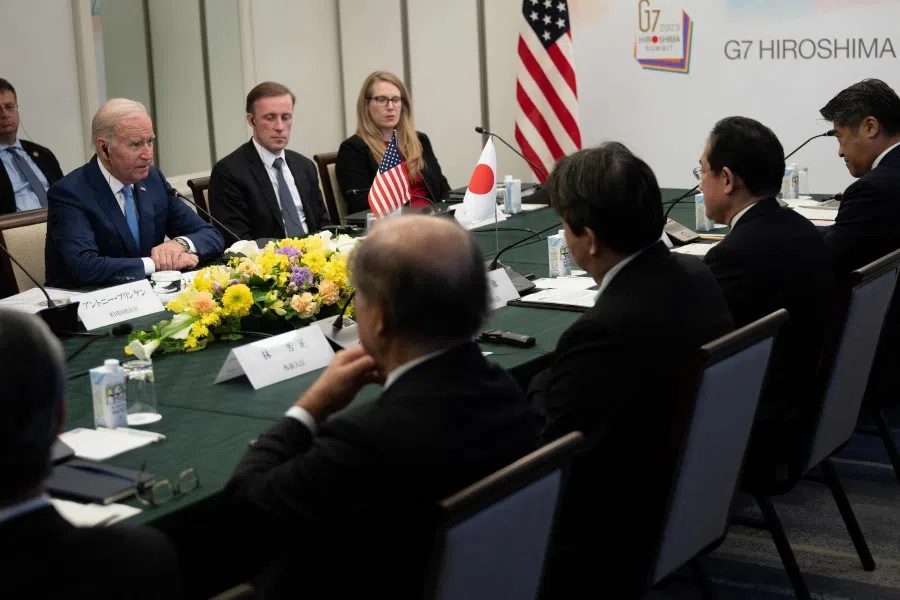
With the Chinese and US economies so intertwined, and given their complex and multidimensional relationship, it is difficult for Washington to simply decouple from and contain Beijing, much less rally the entire Western world to treat China as such. Similarly, China cannot be completely self-sufficient and non-reliant on the US, nor counter the US with a tit-for-tat approach. If both sides fall into this zero-sum game, both will end up getting hurt.
This is the reality and the hard truth. China and the US probably know it, which is why over the past few months, amid the hostilities, they have been testing each other's limits and adjusting their strategies, and maintaining the tussling without cracking. Now that they are starting to talk to each other, it shows both sides are willing to reach a new tentative balance in bilateral relations. But as the saying goes, Rome wasn't built in a day, and the deep-rooted differences in values and conflicting national interests between China and the US did not happen overnight. How long will it take to resolve? And it remains to be seen how these two major powers can reach that tentative balance, and how long it can be maintained.
This article was first published in Lianhe Zaobao as "拜登的"解冻"预言能否成真?".



![[Big read] When the Arctic opens, what happens to Singapore?](https://cassette.sphdigital.com.sg/image/thinkchina/da65edebca34645c711c55e83e9877109b3c53847ebb1305573974651df1d13a)
![[Video] George Yeo: America’s deep pain — and why China won’t colonise](https://cassette.sphdigital.com.sg/image/thinkchina/15083e45d96c12390bdea6af2daf19fd9fcd875aa44a0f92796f34e3dad561cc)
